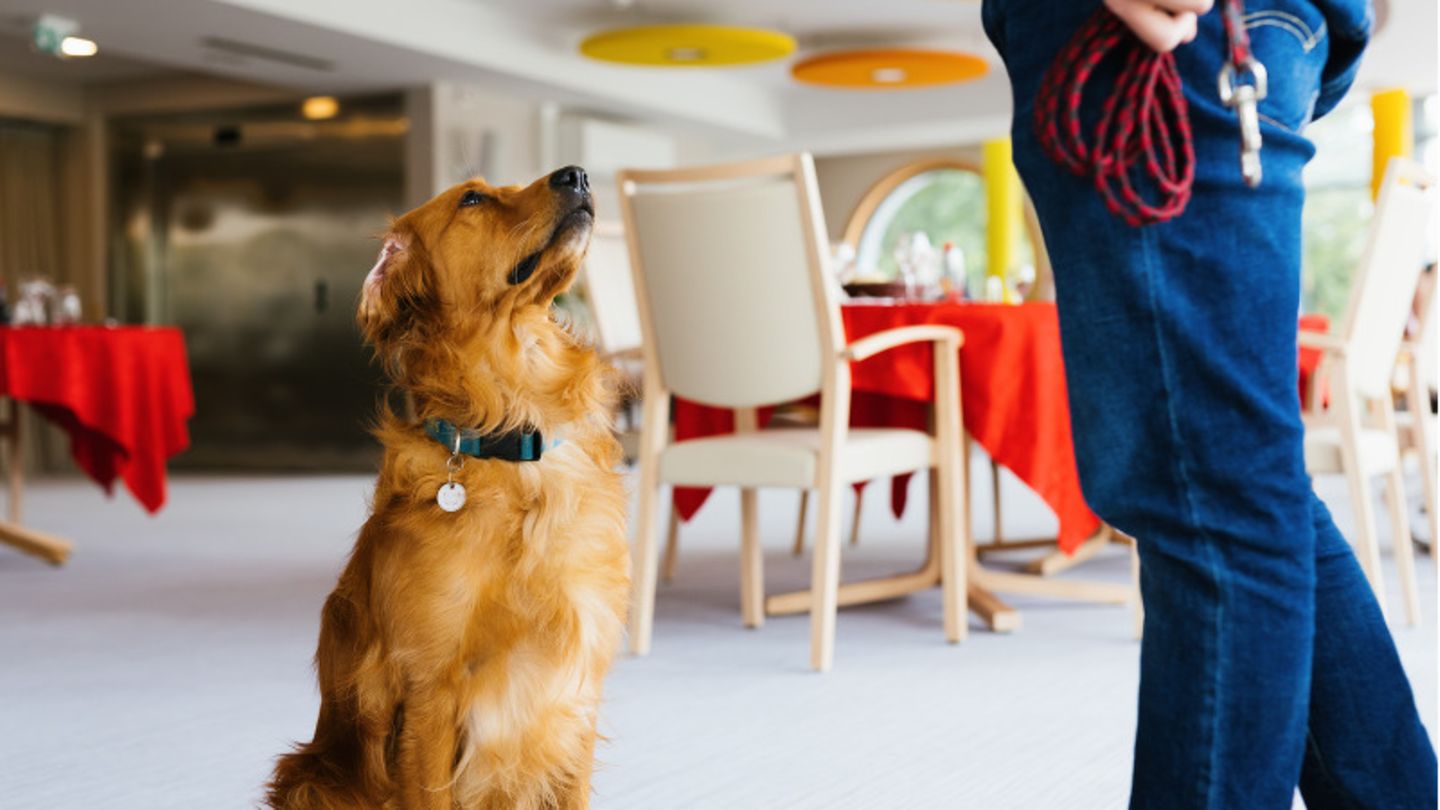Corona infections can be sniffed out by dogs. That is why in France people in old people’s homes are to be “tested” regularly by four-legged friends. Opportunities are also opening up for Germany.
If you watch Pokaa like that, you could almost think that the coronavirus smells good. At least the smell of sweat from an infected person seems to magically attract the Golden Retriever: Without thinking twice, he sits down in front of the metal box with the positive sample and nudges it again and again with his snout.
According to its trainers, Pokaa is the first corona sniffer dog to be used in France. He works in an Alsatian retirement home in the immediate vicinity of the German border. The two-year-old animal is supposed to help detect infections in the facility quickly and safely – and could soon also work for German homes.
Animal sniffing skills scientifically proven
The method was developed with the veterinary university EnvA near Paris. The people to be tested press a cotton cloth under their armpits for a while. The cloths are then placed individually in perforated metal boxes. Pokaa walks past the row of boxes – looking for the smell of the so-called spike protein of the coronavirus. In front of sweat samples from infected people, he sits down and nudges the box with his nose.
It has been scientifically proven that dogs are able to detect corona infections with their excellent sense of smell. Recently, researchers from the University of Veterinary Medicine Hannover published a study on the subject. Result: Sniffer dogs were able to recognize more than nine out of ten people infected with corona using sweat samples (91 percent). In addition, they rarely falsely marked corona-negative people as positive. When urine was presented for sniffing, the results were even better. A study from Great Britain also provided promising findings.
There is already experience from the airport in the Finnish capital Helsinki. There, volunteers were able to be tested for the corona virus by eight corona detection dogs until the end of May. The animals used their noses to examine cloths that the test subjects had wiped over their skin beforehand. “In the middle of the pandemic, it was something that gave people hope and joy,” said Susanna Paavilainen from the Nose Academy, who used the dogs at the airport. The pilot project is over, but in the future the dogs could work on Finland’s borders.
One hundred percent hit rate on Pokaa’s first day
There are also high hopes for Pokaa, the golden retriever from Alsace. Pokaa’s trainer Christelle Schreiber explains that he had a hit rate of 100 percent in the first tests in the “La Roselière” nursing home in Kunheim. He might even be able to determine the infection earlier than PCR tests: Pokaa had marked a sample that was actually suspected to be negative. The person in question had been subjected to a PCR test again – and was still infected. “When we saw that he was just not wrong, we thought ‘wow’,” says Schreiber. Pokaa will soon test the more than 200 residents and employees of the home on a regular basis.
The dog trainer had previously accompanied the animal during its four-week training near Paris. There he was first given synthetically produced spike protein – pure to train his nose on it. Over time the concentration was reduced further and further. In the end, weld samples from real people were used.
“Our dogs will save lives”
In the nursing home in Kunheim, people are enthusiastic about the new opportunities that Pokaa is opening up. Finally, no more nasal swabs from dementia patients, some of which have to be held with several helpers and who experience it as violent, says home manager Robert Kohler. Finally, faster results – at a cheaper price than laboratory tests. The additional training of a Corona search dog costs 3500 euros – that pays off quickly with the mass of tests saved.
Kohler is also president of the Handi’Chiens association. He actually trains dogs to work with the elderly and the sick – just like Pokaa once did. The new goal is to make as many dogs as possible fit to search for corona infected people. “Our dogs will save lives,” says Kohler with conviction. Financial support has been requested from the French government. 250 Handi’Chiens dogs are already in use in homes and hospitals. According to Kohler, all of them should complete the additional corona training and then test people on a large scale.
One dog is enough for regular tests in up to ten homes, Kohler believes. And once the pandemic is over, the four-legged friends can be taught to sniff out other diseases.




